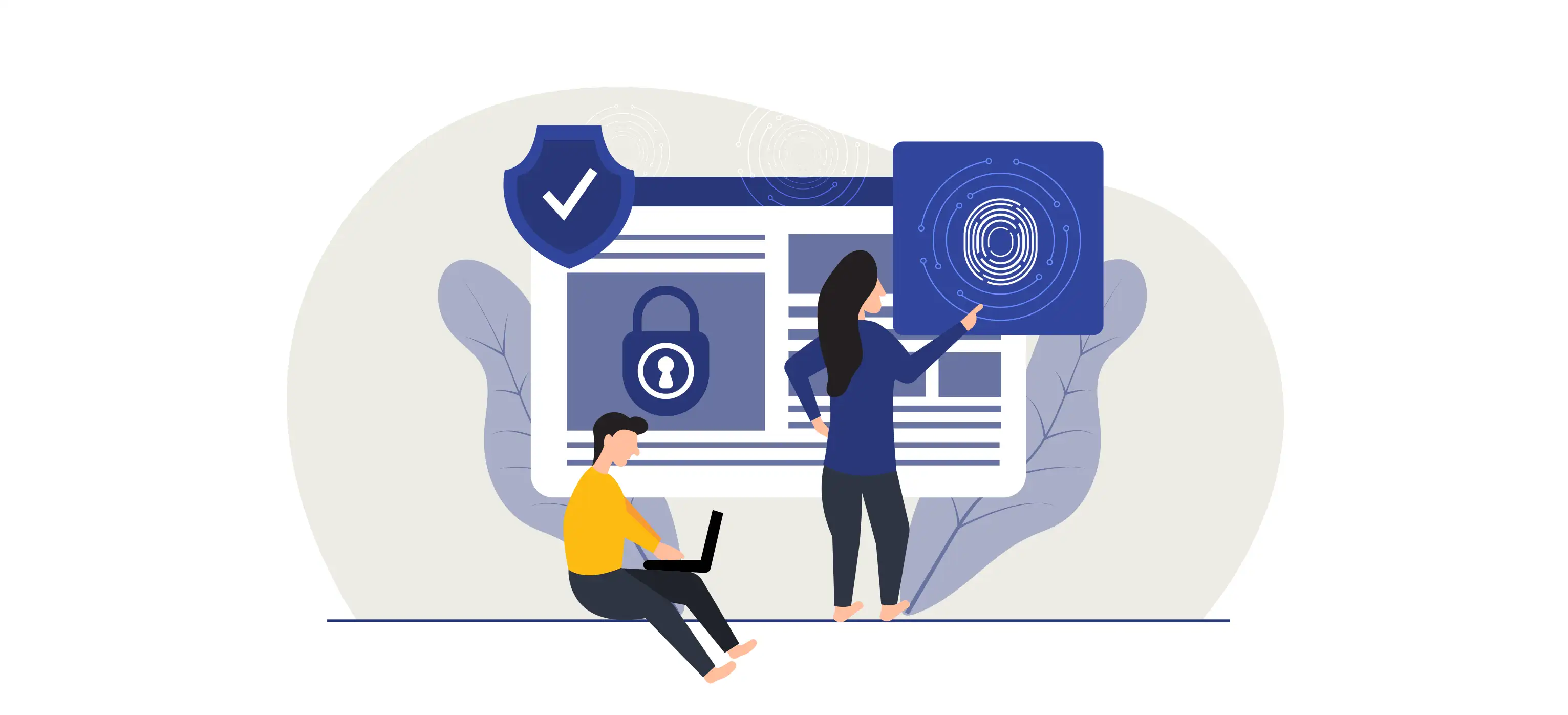 Satendra K
Apr 17, 2025
Satendra K
Apr 17, 2025

Obtaining a top entry-level cybersecurity certification can help you break into the dynamic cybersecurity field. Some of the top Entry-Level Cybersecurity Certifications include CompTIA Security+, CompTIA A+, Cisco CCNA, GIAC Information Security Fundamentals (GISF) and EC-Council Certified Cybersecurity Technician (CCT).
Today, Cybersecurity is important than ever before. It is also one of the fields that offers lucrative career options. The average annual salary for a cybersecurity professional ranges from $75,000 to $140,000 in the USA, depending on the role and experience. While in the UAE, the average annual salary for a cybersecurity professional is around AED 165,684. An entry-level cybersecurity certification can help you take your first step towards becoming a cybersecurity professional.
Let’s explore the Top Entry-level Cybersecurity Certifications that can enhance your expertise, boost your credibility, and open doors to exciting opportunities in Cybersecurity.
While most professionals in this field hold at least a bachelor's degree in computer science, many employers prefer candidates with certifications that validate their knowledge of best practices. For those just starting in cybersecurity, pursuing an entry-level certification can provide a competitive edge in their careers. Take a look at the top entry-level cybersecurity certifications that you can consider pursuing to start your career in the field of cybersecurity:
|
Cybersecurity is essential for protecting computers, networks, and data from theft, damage, loss, or unauthorised access. As interconnectivity grows, so do the risks of cybercrime, leading to an increased demand for cybersecurity professionals. According to the (ISC)² Cybersecurity Workforce Study, the global demand for cybersecurity experts is expected to exceed 3 million. |
CompTIA Security+ is a globally recognised entry-level certification that validates the fundamental knowledge and skills required for a career in IT security. It establishes a baseline for security practitioners and is often a stepping stone to more advanced certifications. It emphasises practical skills across a broad range of cybersecurity topics.
The average salary for professionals holding the CompTIA Security+ certification can range from $60,000 to $90,000 USD per year in 2025, depending on experience, location, and specific job role.
| Exam Code | SY0-701 |
| Number of Questions |
A maximum of 90 questions
|
| Type of Questions |
Multiple-choice and performance-based
|
| Length of Test | 90 minutes |
| Passing Score |
750 (on a scale of 100-900)
|
| Recommended Experience |
CompTIA Network+ and two years of experience working in a security/ systems administrator job role
|
| Languages |
English, with Japanese, Portuguese and Spanish to follow
|
| Retirement |
TBD – Usually three years after launch
|
| Testing Provider | Pearson VUE
|
The (ISC)² Certified in Cybersecurity (CC) is an entry-level certification designed for individuals looking to start a cybersecurity career. It focuses on foundational cybersecurity knowledge and terminology across five key domains. (ISC)² is a well-respected non-profit organisation in the cybersecurity industry.
Professionals with the (ISC)² CC can expect an average salary in the range of $50,000 to $75,000 USD per year in 2025, depending on the specific role and company.
| Exam Domains |
|
| Passing Score |
700 out of 1000 points.
|
| Exam Language |
Available in English, Chinese, Japanese, Korean, German, and Spanish.
|
| Prerequisites: | None |
This fundamental-level certification from Microsoft validates foundational knowledge of security, compliance, and identity (SCI) concepts and related cloud-based Microsoft solutions. It's suitable for business stakeholders, new or existing IT professionals, and students interested in Microsoft's SCI offerings.
The Microsoft Certified: Security, Compliance, and Identity Fundamentals (SC-900) is a fundamental certification. It can lead to roles like;
Professionals with SC-900 often start in broader IT roles with security aspects, with salaries ranging from $55,000 to $80,000 USD per year in 2025, depending on the primary role and experience.
| Exam Code | SC-900. |
| Number of Questions |
Not specified, but typically ranges from 40-60.
|
| Exam Duration | 45 minutes. |
| Format |
Proctored, may include interactive components.
|
| Prerequisites |
Familiarity with Microsoft Azure and Microsoft 365 is recommended.
|
This certificate from ISACA (Information Systems Audit and Control Association) provides a strong foundation in cybersecurity principles. It explores the critical role of cybersecurity professionals in protecting enterprise data and infrastructure. The program is self-paced and can be completed relatively quickly.
Individuals with the ISACA Cybersecurity Fundamentals Certificate can expect salaries in the range of $50,000 to USD 75,000 per year in 2025, depending on the specific role and their overall IT background.
While not strictly a cybersecurity certification, CompTIA A+ is an entry-level IT certification that covers a broad range of hardware, software, networking, and troubleshooting skills. It's often considered a foundational certification for individuals entering the IT field, and a solid understanding of these fundamentals is beneficial for a cybersecurity career.
Professionals with CompTIA A+ certification typically earn between $40,000 and $60,000 USD per year in 2025, depending on the specific role and experience. This can be a starting point for roles that may transition into cybersecurity.
| Exam Codes | CompTIA A+ 220-1101 (Core 1) and 220-1102 (Core 2) |
CompTIA A+ 220-1201 (Core 1) and 220-1202 (Core 2)
|
| Exam Description | CompTIA A+ 220-1101 covers mobile devices, networking technology, hardware, virtualisation and cloud computing. CompTIA A+ 220-1102 covers operating systems, security, software and operational procedures. |
CompTIA A+ 220-1201 covers mobile devices, networking technology, hardware, virtualisation and cloud computing.
CompTIA A+ 220-1202 covers operating systems, security, software and operational procedures. |
| Number of Questions | Maximum of 90 questions per exam | |
| Length of Test | 90 Minutes per exam | |
| Recommended Experience | 9 to 12 months hands-on experience in the lab or field | |
Cisco Certified Network Associate (CCNA) is an associate-level certification focused on networking fundamentals. While not solely a cybersecurity certification, a strong networking background is crucial for cybersecurity professionals. The CCNA covers network infrastructure, IP connectivity, network access, IP services, security fundamentals, and automation/programmability.
The average salary after CCNA certification is around is approximately $50,000 - USD 90,000 per year in other regions, depending on experience and location in 2025.
| Certification Name |
CCNA (Cisco Certified Network Associate)
|
| Exam Code |
200-301 CCNA – Implementing and Administering Cisco Solutions
|
| Exam Duration | 120 minutes |
| Languages Available |
English, Japanese
|
| Last Date to Test CCNA 1.0 | August 19, 2024 |
| Validity | 3 Years |
| Skills Tested |
|
The GIAC Information Security Fundamentals (GISF) certification validates a practitioner's understanding of foundational information security concepts, computer functions and networking, introductory cryptography, and cybersecurity technologies. It demonstrates knowledge of threats, risks, and best practices for protection.
Professionals with the GISF certification can expect an average salary in the range of $60,000 to $85,000 USD per year in 2025, depending on their overall experience and the specific role.
| Format | Proctored Exam |
| Number of Questions | 79 |
| Time Limit | 3 hours |
| Delivery |
|
The GIAC Security Essentials (GSEC) certification validates a practitioner's knowledge of information security beyond basic terminology. It demonstrates qualification for hands-on IT systems roles with security responsibilities. It covers a broad range of technical security topics.
GSEC-certified professionals can command salaries ranging from $70,000 to $110,000 USD per year in 2025, depending on experience and the specific role.
| Format | Proctored Exam |
| Number of Questions | 106 - 180 |
| Time Limit | 4 hours |
| Delivery |
|
The EC-Council Certified Cybersecurity Technician (CCT) certification is a hands-on, entry-level program designed to validate technician-level IT and cybersecurity skills. It focuses on practical skills across multiple cybersecurity domains with significant hands-on labs.
Professionals with the CCT certification can expect salaries in the range of $55,000 to $80,000 USD per year in 2025, reflecting its hands-on focus and the demand for technical cybersecurity skills.
| Exam Title |
Certified Cybersecurity Technician
|
| Exam Code | 212-82 |
| Number of Questions | 60 |
| Test Duration | 3 hours |
| Test Format |
Multiple Choice & Real Life Hands-on Practical Exam (conducted on a live cyber range)
|
| Delivery |
Online or via EC-Council Exam Portal
|
| Prerequisites |
None specified; designed for those starting or transitioning to a cyber technician role
|
The EC-Council Certified Secure Computer User (CSCU) certification focuses on providing individuals with the necessary knowledge and skills to protect their information assets in everyday computer use. It covers fundamental security threats and countermeasures relevant to end-users.
While not a direct cybersecurity role, it's valuable for individuals in any IT-related position or those handling sensitive data, such as
The salary of a CSCU Certified professional ranges from $40,000 to $65,000 USD per year in 2025.
| Exam Name |
CSCU (112-12) Exam
|
| Number of Questions | 50 |
| Test Duration | 2 hours |
| Test Format | Multiple Choice |
| Delivery |
EC-Council Exam Portal
|
| Prerequisites |
Designed for any individual who uses computers and the internet
|
The EC-Council Ethical Hacking Essentials (EHE) certification is an introductory cybersecurity course that prepares individuals with ethical hacking and penetration testing fundamentals. It provides a solid foundation for understanding offensive security concepts and tools.
The average salary of a CSCU-certified professional ranges from $40,000 to $60,000 per year in the United States.
| Exam Name |
Ethical Hacking Essentials (EHE)
|
| Offered By | EC-Council |
| Target Audience |
Students, beginners in cybersecurity, and entry-level IT professionals
|
| Exam Code | 112-52 |
| Test Format | Multiple Choice |
| Duration | 2 hour |
| Prerequisites |
No prior cybersecurity knowledge or IT Work experience required
|
| Main Topics Covered |
Information Security, Threats, Network Security, Cryptography, Ethical Hacking
|
Here is the list of other major locations where Edoxi offers Cyber Security Courses
Cyber Security Courses in Dubai | Cyber Security Courses in Qatar | Cyber Security Courses in Muscat|Cyber Security Courses in Bahrain | Cyber Security Courses in Riyadh | Cyber Security Courses in Kuwait | Cyber Security Courses in Muscat |

Chief Technology Officer & Cyber Security Expert Trainer
Satendra Singh Khari is a renowned cybersecurity expert and the Chief Technology Officer at Edoxi, where he leads the CEH v13 AI program. With over 12 years of experience, he has trained more than 10,000 professionals and earned recognition in the Circle of Excellence for 2023 and 2024. Mr. Khari holds multiple industry certifications, including CISSP, CISM, CEH, CPENT, and CREST, which showcase his expertise in vulnerability assessment, penetration testing, and incident handling.
His practical insights, gained during his tenure as Head of Information Security in Malaysia, enhance the learning experience by providing students with essential technical skills and a clear path to career advancement. Recognized as a leader in his field, he has received the Internet 2.0 Outstanding Leadership Award for three consecutive years (2022-2024), reflecting his dedication to empowering the next generation of cybersecurity professionals.